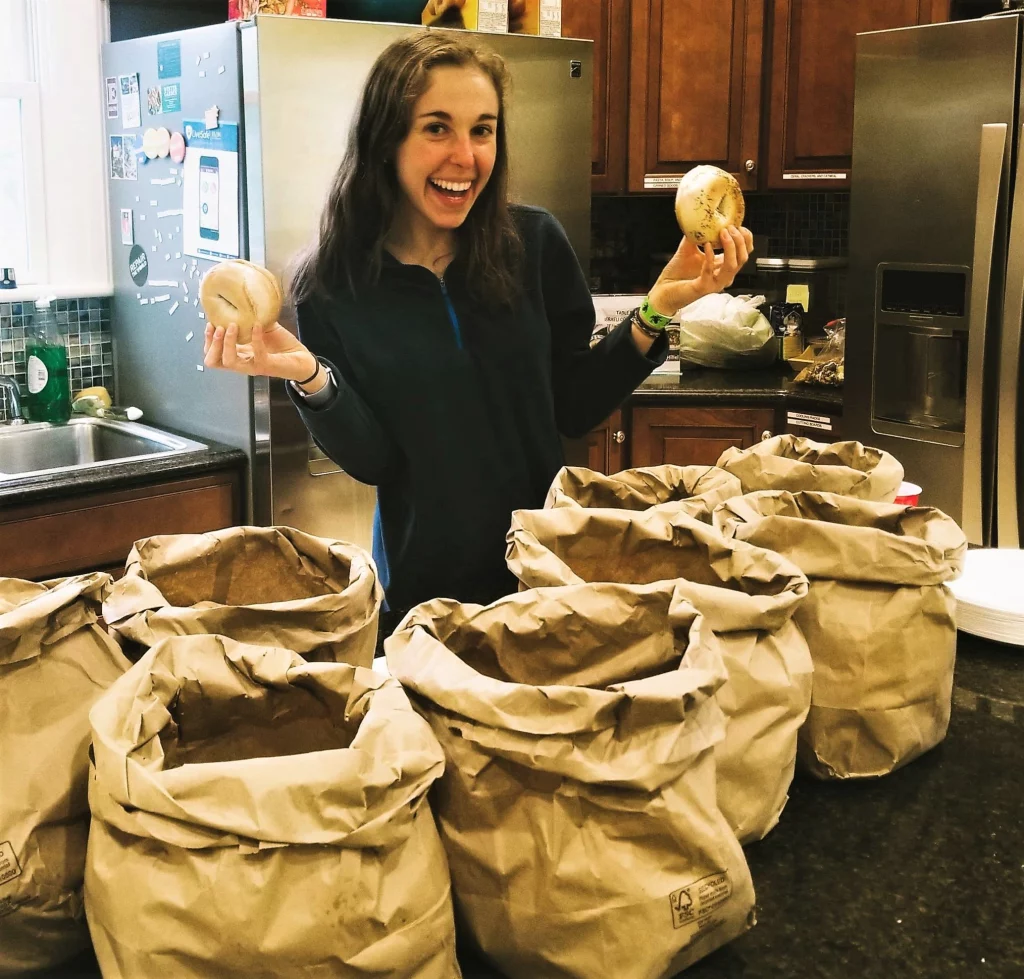Shalom Y’all

What’s that thing on the door?” asked Jackson, class of ’21, of his Duke University roommate and Blue Devils football teammate, Daniel Karlin. Jackson hails from Highland Park, Texas, an area outside of Dallas where fewer than 1 percent of residents are Jewish.
Karlin’s mezuzah on the doorpost of their Southgate Residence Hall dorm room, and his absence from practice to observe Rosh Hashanah, created conversation among the team. But the questions came from a place of general curiosity about Judaism, Karlin said.
“Many of the freshmen on the team might have met a Jew, but they weren’t friends with any or have seen anything related to Judaism,” Karlin explained.
Increasingly, Jewish students find themselves drawn to Southern schools — not only Duke, which has traditionally boasted a sizable Jewish population, but to institutions like Elon University, the University of North Carolina at Chapel Hill, the University of Mississippi and the University of Alabama. Some students said enrolling in these schools gives them a sizeable stake in building a Jewish community on campus and turns them into informal Jewish educators.
Jewish students make up more than 10 percent of Duke’s 6,532 undergraduate population. The school offers kosher food, including an all-you-can-eat buffet at the Freeman Center for Jewish Life, as part of students’ meal plans; multiple options for religious services; Jewish studies courses and certificate programs that require classes that could range from “Contemporary Israeli Cinema” to “Jewish Mysticism”; a campus rabbi; and a Jewish Agency for Israel Fellow.
Rebecca Simons, former director of Jewish Life at Duke, said it is a common misconception that Southern schools don’t feature thriving Jewish communities. She said Duke offers opportunities for Jewish students to shine as leaders on and off campus.
Just look at Benji Satloff, class of ’19, who is actively involved with Hillel. Satloff was selected to serve on the White House’s It’s On Us student advisory committee, advocating for bystander intervention to prevent campus sexual assault during the 2016-2017 academic year. Through his role on the committee, Satloff brought the It’s On Us campaign to Duke’s Greek system and partnered with Hillel to create program opportunities for students across campus.
Daniela Nasser is a member of the Class of ’20 at Elon University in North Carolina, which she calls “the most beautiful campus” in America for its Colonial red brick buildings and bubbling fountains. Nasser said that attending a school where she’s seen as a minority — her class has about 150 Jewish students — motivates her to get involved on campus, feel more passionate about her Jewish identity and take responsibility for fostering Jewish community.
Nasser, a Sephardic Jew from New York’s Upper East Side, recalled an instance during her first week at Elon when she told a newly made friend that she was going to Shabbat dinner at Elon University Hillel. She recalled his reply: “Oh, is that a Jewish thing?”
Now, Nasser and that friend attend Bagel Brunch together at Hillel every other Sunday.
“Because I go to a small school with a growing Jewish population, I have realized that everyone at Hillel wants to be there. They are invested in being there,” Nasser said. “I have found that schools with a large Jewish population tend to think of Judaism as the norm. However, going to a school where that is not the case, I have found that Jews come to Hillel with purpose.”
Like Karlin, Nasser knows that she’s often the first Jewish person many people have ever met at Elon, and she loves when she can answer questions about Judaism. But she finds it more interesting when she can’t.
“I love that my classes and peers have pushed me out of my comfort zone,” Nasser said. “I am constantly learning about my Jewish identity, and because of that I am growing as a person.”
Hillary Zaken, assistant director for development and strategic communications at Elon Hillel, noted that in the past decade, the Jewish population at Elon has risen by 55 percent. Even more remarkable, in the past five years, Elon’s Jewish population has increased by 222 percent.
Rachel Lipman, class of ’20 at the University of North Carolina at Chapel Hill, didn’t enter college especially eager to join Hillel and connect with fellow Jews. She estimated that just five of the 500 students in her graduating class at Athens Drive Magnet High School in Raleigh, North Carolina, were Jewish.
But a random trip to UNC Hillel during her freshman year led to a spot on the chapter’s engagement committee. Soon she was running for co-president, a role she assumed last spring. Now she spearheads engagement, maintaining a presence at all Hillel events. She particularly enjoys “Late Nights at Hillel,” when, to counteract the pressure of exam time, the building is open until midnight and students congregate to chat, color and munch on pizza and waffles.
“Hillel for me is a second chance to do some of the things that other kids got to do in high school,” Lipman said.
University of Mississippi’s Katherine Levingston, class of ’19, grew up in the state. Jews there made up only 0.1 percent of the population in 2016. She and her sister were the only actively Jewish children in their hometown of Clarksdale, and drove about an hour and a half to Sunday school each week. Coming from a place where being Jewish was a lonely identity to embrace, finding a vibrant Jewish community was important to Levingston when picking a college.
“Working to keep and expand a Jewish community on a Southern campus has been so rewarding,” Levingston said, “and I would not change my decision for anything.”